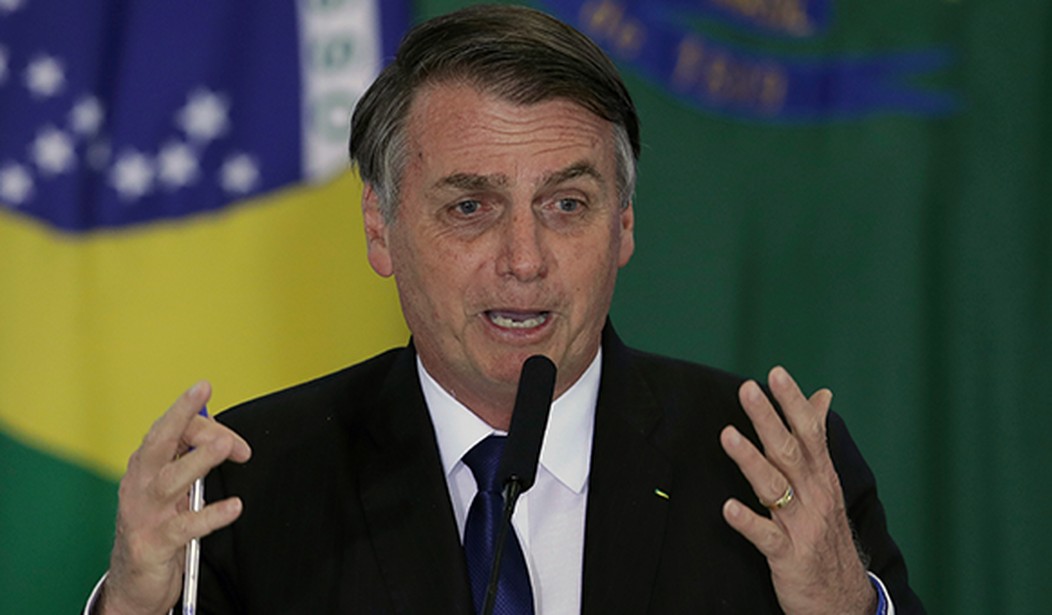We have an important moment ahead of us. If Presidente Jair Bolsonaro is not re-elected as President of Brazil, Russia and China will have perhaps an irrevocable foothold in Latin America which could lead to disaster.
His opponent, called Lula, is a pure and committed communist, just out of prison. God willing, we will see a Bolsonaro re-election.
And Brazil under Bolsonaro is thriving. Thriving. An extraordinary example. No inflation, no BS.
The backstory: In 2018, after four national victories for the PT – a self-proclaimed socialist party – a retired army captain and with no prominence in Congress chose to run for the presidency of Brazil. The dispute would be inglorious. There were several attempts to secure a party that would accept it all as an adventure. In the end, the PSL - a liberal party that had elected only one federal deputy in 2014 - agreed to go for it.
Due to the peculiarities of the Brazilian political system, choosing the PSL would mean that Jair Bolsonaro would have only 8 seconds of daily time on radio and TV. His campaign also spent less than US$ 5 million in a continental country of 8.5 million square kilometers and over 210 million people. Few would bet that this candidate, a stranger to political circles, could win a national election. One of the few who bet was Paulo Guedes, PhD in Economics at the University of Chicago, one of the most successful investors in Brazil.
Jair Bolsonaro and Paulo Guedes ended up winning an election against the Brazilian establishment. After an assassination attempt, against traditional parties, against the biggest political leaders, against the big economic groups and against the biggest corruption scandal ever registered in the democratic world: called “Operation Car Wash”, which in addition to arresting some of the biggest businessmen in Latin America and the leaders of the biggest political parties in Brazil, also arrested two former presidents, Lula and Michel Temer, and culminated in the impeachment of a third, Dilma Rousseff.
Recommended
Jair Bolsonaro ran a campaign promising reform. And his economic team have got it done. Always referring to the Ronald Reagan and Margaret Thatcher governments, remembering that Brazil took too long to carry out the liberalizing reforms that other countries had promoted in the 20th century. Due to its nationalist history, the opposition in the press and political parties always discredited the liberal vocation of the Bolsonaro government. The fact is that Bolsonaro and Guedes have led a revolution in Brazil that few people recognized. “Bolsonomics.” If you will.
Paulo Guedes and Jair Bolsonaro promoted the largest program of privatization and concessions in the history of Brazil. There were more than 168 privatization, concession and divestment operations. According to the newspaper O Estado de São Paulo, one of the largest in Brazil, revenue from privatizations and concessions raised US$77.2 billion, a result that exceeds by 15% the US$67.5 billion of privatizations carried out from 1980 to 2018. This includes giants such as TAG, the largest gas distributor in Brazil, BR Distribuidora, the largest fuel distributor, and Eletrobras, the largest electricity distributor in Latin America. Despite this undeniable and resounding success, critics focus on nonsense, such as the existence of a public broadcaster: TV Brasil. I don't know of any large country that doesn't have a national public broadcaster, like PBS here in the US.
Within the privatization program, the government changed the rules of the winners. Whoever made the highest bid would no longer win, but whoever committed to making the greatest investment. Thus, R$ 1.3 trillion was committed to investments in Brazil. If the already structured projects are executed, R$ 2.9 trillion should be attracted in the decade. In 2021, Brazil was the fourth country that received the most foreign investment in the world according to the OECD, behind only the United States, China and Canada; and ahead of economic powers such as Germany and Japan.
I could go on and on. But I think you get it. The stakes are high. Let us all hope that the Brazilian people see the light and re-elect Jair Bolsonaro next week. It’s important.

























Join the conversation as a VIP Member